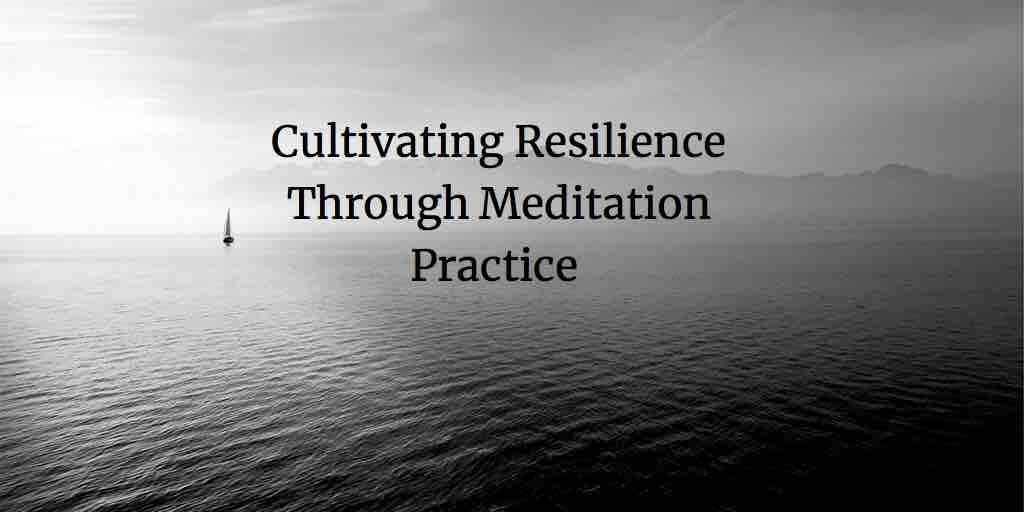Cultivating Resilience Through Meditation
05 Apr, 2023

Cultivating Resilience Through Meditation: A Path to Inner Strength
Introduction:
In the hustle and bustle of modern life, where stress and challenges are inevitable companions, the ability to bounce back and thrive in the face of adversity is a valuable asset. Resilience, defined as the capacity to recover quickly from difficulties, is not only a trait but a skill that can be developed and nurtured. One powerful tool for building resilience is meditation, a practice that has stood the test of time in promoting mental and emotional well-being. In this article, we will explore how meditation can be a transformative journey towards cultivating resilience.
Understanding Resilience:
Resilience is not about avoiding stress or difficult situations but rather about adapting and bouncing back from them. It involves maintaining mental equilibrium, emotional stability, and a sense of purpose even in the midst of challenges. Research has shown that resilient individuals not only navigate through adversity more effectively but also experience better overall well-being.
The Role of Meditation:
Meditation, an ancient practice with roots in various cultures and religions, has gained significant attention in the scientific and medical communities for its positive effects on mental health. When it comes to resilience, meditation serves as a potent tool by addressing various aspects of well-being.
Mindfulness Meditation:
Mindfulness, a core aspect of many meditation practices, involves paying attention to the present moment without judgment. This heightened awareness allows individuals to respond to stressors with greater clarity and composure, fostering a resilient mindset.
Cultivating Emotional Resilience:
Meditation encourages a non-reactive awareness of emotions, providing a space for individuals to observe and understand their feelings without being overwhelmed. This emotional intelligence is crucial for bouncing back from setbacks and maintaining a positive outlook.
Building Inner Strength:
Regular meditation helps individuals develop a sense of inner strength and stability. By connecting with the present moment and cultivating a deeper understanding of the self, meditators are better equipped to face challenges with courage and fortitude.
Practical Meditation Techniques for Resilience:
Breath Awareness Meditation:
Find a quiet space and sit comfortably.
Close your eyes and focus your attention on your breath.
Inhale deeply, exhale slowly, and observe each breath without trying to change it.
When distractions arise, gently bring your focus back to the breath.
Loving-Kindness Meditation:
Begin by focusing on feelings of love and compassion for yourself.
Gradually extend these feelings to loved ones, acquaintances, and even those with whom you may have difficulties.
This practice fosters a sense of connection and empathy, contributing to emotional resilience.
Body Scan Meditation:
Lie down or sit comfortably and bring attention to different parts of your body.
Scan each area, releasing tension and cultivating a sense of relaxation.
This practice promotes a mind-body connection, enhancing overall well-being.
Conclusion:
In the pursuit of resilience, meditation stands out as a transformative practice that not only enhances mental and emotional well-being but also equips individuals with the tools to navigate life's challenges with grace. By incorporating mindfulness, emotional intelligence, and inner strength, meditation becomes a guiding light on the path to resilience. As you embark on this journey, remember that resilience is not just about enduring difficulties but about emerging stronger and more vibrant on the other side. Through meditation, you can cultivate the inner resources needed to face life's inevitable storms with a calm and resilient spirit.




